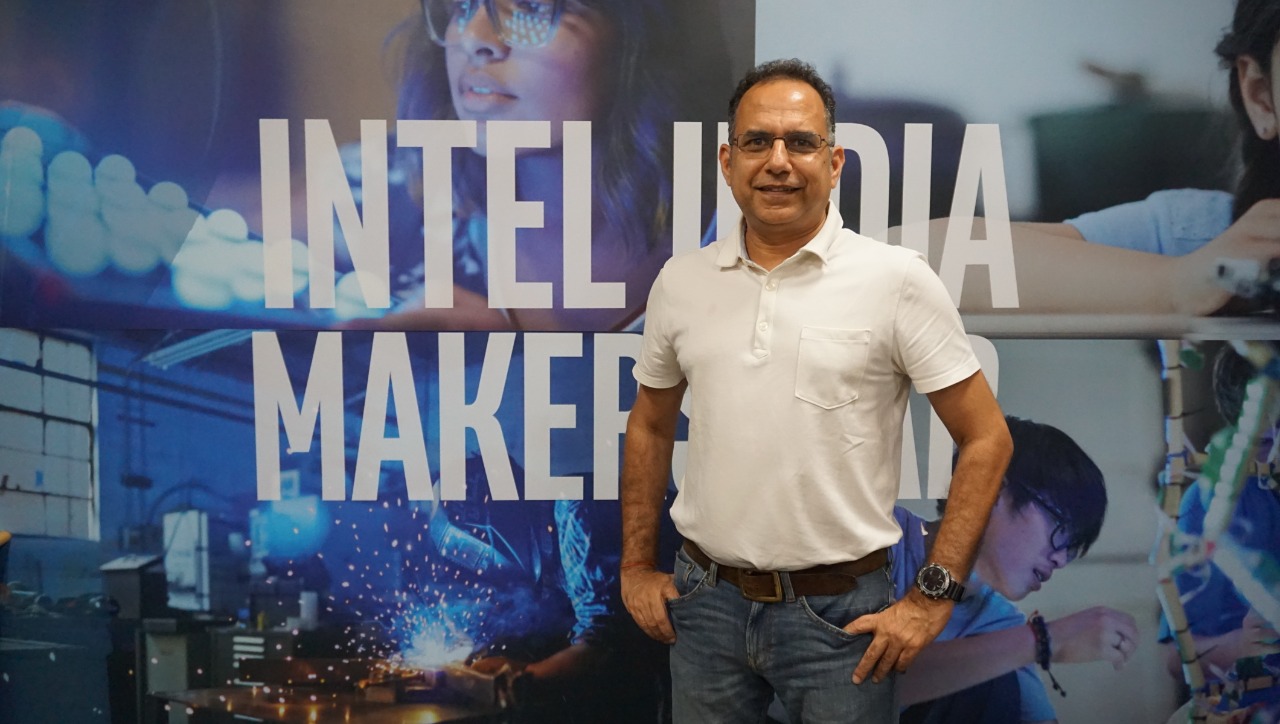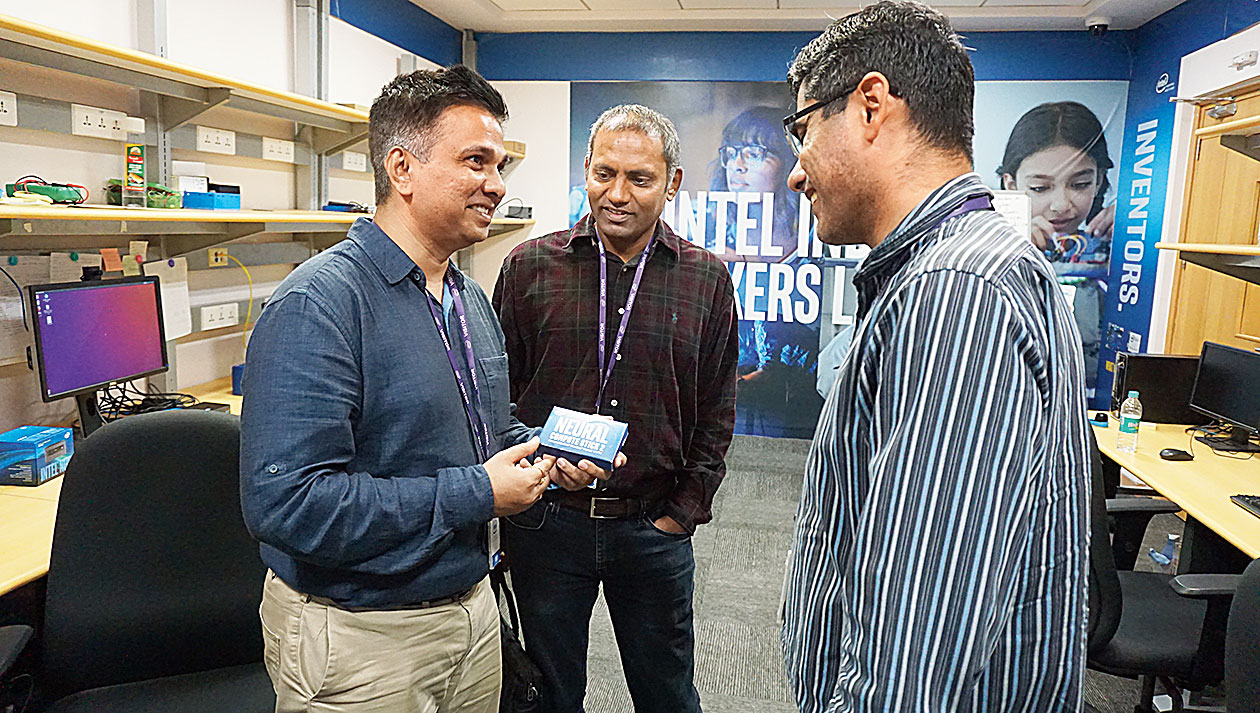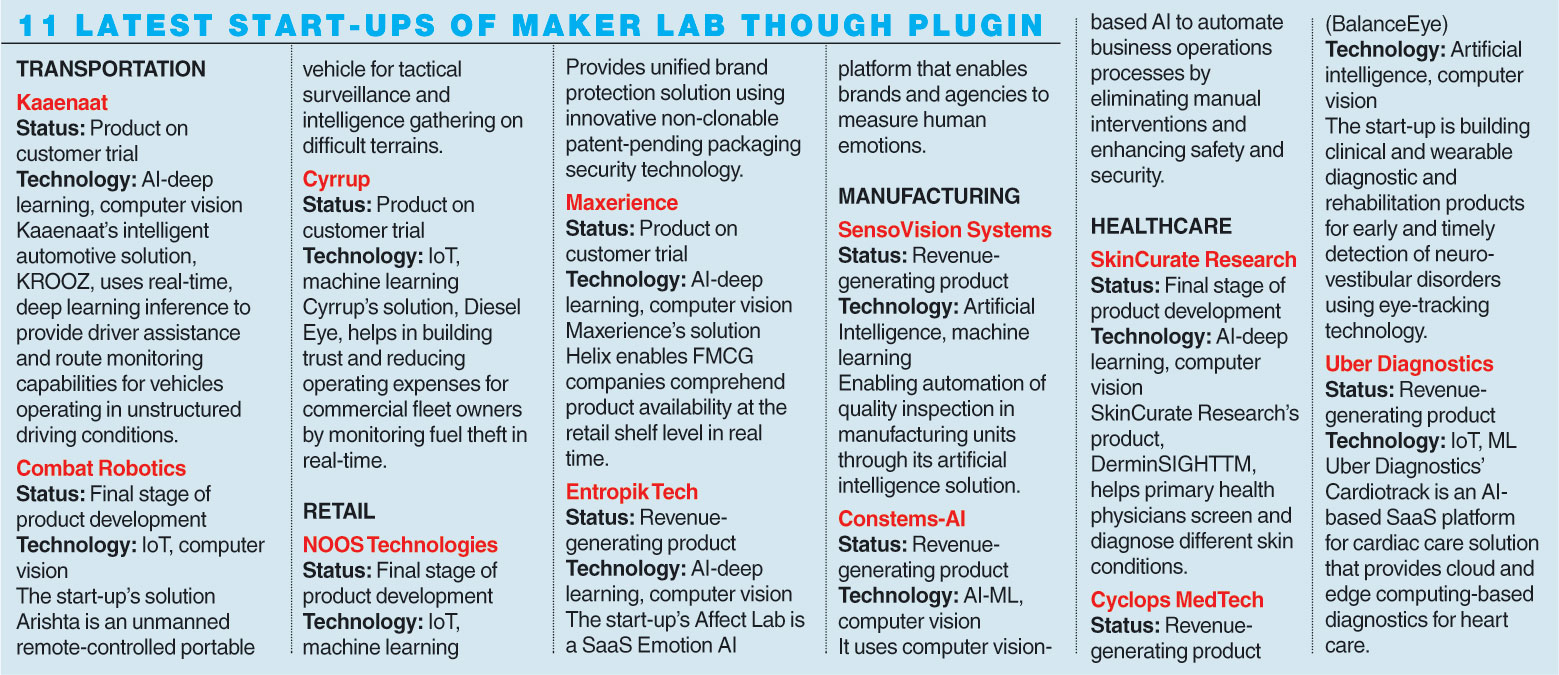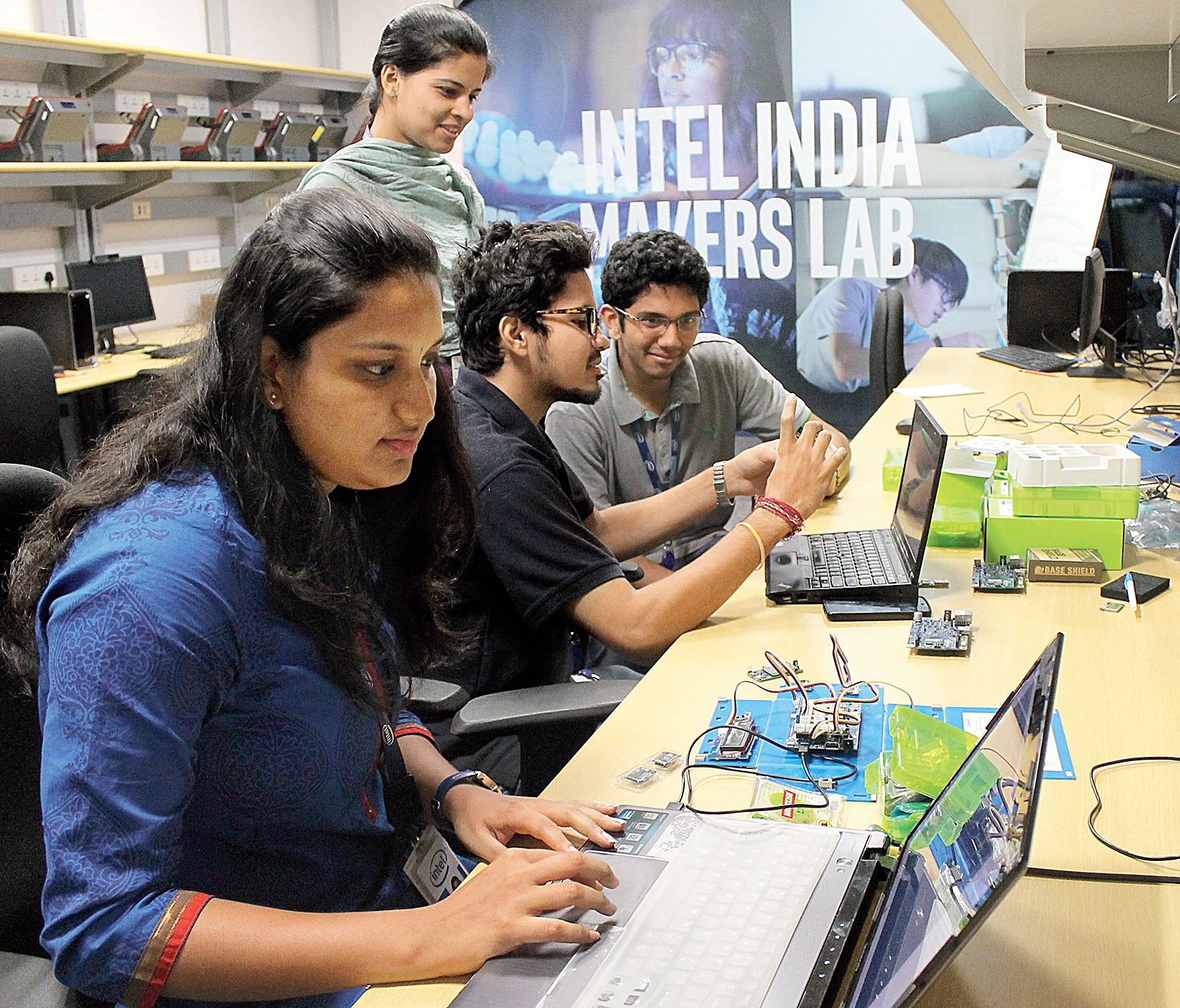When it comes to software, there are plenty of names to go around in India but the progress China or Taiwan has made over a couple of decades in hardware innovations remains two steps ahead. In 2016, Intel started the Intel India Maker Lab programme to create a vibrant hardware-based innovation ecosystem in India, addressing the challenges faced by start-ups in the hardware and systems space in multiple verticals like transportation, industrial automation, retail, healthcare and more.
To make a bigger impact, Intel India Maker Lab collaborated with IIT-Bombay (SINE) and Department of Science & Technology (DST) to create PlugIn, a programme to incubate, fund, mentor and connect start-ups to the market and the investor community.
t2 spoke to Jitendra Chaddah, senior director, strategic development and operations, Intel India, who conceptualised and executed the Maker Lab programme.

Jitendra Chaddah, senior director, strategic development and operations, Intel India, the man who has conceptualised and executed the Maker Lab programme Picture: Intel India
Now in its fourth year, what made Intel establish Maker Lab, which is focused on hardware start-ups?
Intel has been doing cutting-edge R&D work for the last 20 years in India. Intel India R&D centre is the largest centre outside the United States and has become a critical design engineering centre for global Intel product development. We collaborate with multiple design organisations of Intel around the world and have a very critical and complex product engineering portfolio — SoC design, graphics, software and platforms for cloud, client and IoT solutions. Innovation and engineering excellence are the foundation of Intel’s 50 years of success in the tech industry. Around the world, Intel works with local partners to build a healthy tech ecosystem supported by innovation and entrepreneurship.
In 2016 we realised that hardware and systems-based solutions did not have the required support to create a desired impact; it needed some handholding and engagement from different stakeholders such as government, academia and industry to boost the hardware ecosystem. We started the Intel India Maker Lab programme and provided start-ups access to lab infrastructure, tools and technologies, mentorship and business connect as a starting point towards developing the overall support system.
Can the Indian hardware ecosystem compete with that in China or Taiwan?
There are multiple components to the hardware ecosystem. There is the design aspect, systems and product development and system manufacturing. While India is well established as a design and development powerhouse with good progress made on the product development front, we still have some work to do on the manufacturing side. There is no doubt that India will become a strong player in the overall hardware space in the coming years. As we develop our capability, rather than competing, we should look at collaborating with the developed ecosystems across the world to bring the best solutions for local and global customers.
With all the stakeholders including the government, industry and academia getting involved and contributing to the hardware capabilities, I am confident that India will become a key contributor to the global hardware marketplace. In 2016, Intel India Maker Lab was a first-of-its-kind hardware incubation initiative. Since then, it has gained momentum and multiple companies and fellow travellers have come forward in support of building the hardware ecosystem.

Start-ups in action at Intel India’s Maker Lab. Picture: Intel India
Wouldn’t it help if school students get interested in hardware development?
We have always been encouraging innovation at all levels. We have programmes that cater to school students. In support of the Atal Innovation Mission, Intel India worked with NITI Aayog to design the programme, and has set up 10 exemplar Atal Tinkering Labs across India that have trained over 10,000 students. Intel recognises that AI is a critical competency for the next generation of innovators. Therefore, we have started a programme for CBSE school students called “AI4Youth” that aims to empower youth with AI-readiness skills in an inclusive way. In addition, we’ve been successfully running the Intel AI Academy in India. We have trained 1,50,000 developers, students and professors across more than 150 organisations in India through relevant AI trainings and workshops.
Do you think most start-ups in the programme are focused on health and retail?
For the selection process for the Intel India Maker Lab and PlugIn programme, we try to stay vertical-agnostic. However, in a particular year, we might have more start-ups in specific verticals — for example, healthcare and retail. Our selection criteria include the quality of ideas, competency of the team and our ability to accelerate their product development and reach the market.
If you look at the 60-plus start-ups we have supported so far, they span multiple verticals — industrial automation, transportation, healthcare, environment, retail and so on and they touch multiple technologies, like Cloud, Artificial Intelligence, IoT and so on. At times the product or solution may be designed for one vertical, but it can find applications in other verticals too.
Do start-ups need to align with Intel’s bigger vision to be a part of the programme?
Intel’s goal is to develop a healthy ecosystem to promote innovation and engineering excellence. Our goal is much broader than just looking through the Intel lens. We look at how differentiated the idea is, the team structure and the competence of the team. What I have seen happening is that once we look at the ideas, they get polished over time.
Do these ideas need to be India specific?
We are pretty open, whether an idea serves customer needs in India or globally. Yes, we are catering to start-ups in India, but we have seen these start-ups bringing in ideas and solutions that can go beyond the India market. What you see today is that a large number of start-ups begin with serving India.
What do you provide the start-ups?
We have a small space in our R&D campus in Bangalore, which we call the Intel India Maker Lab. For startups, we provide tools, equipment, developer kits and mentoring by our senior technologists, and enable business connects with our partners and the investor community. In addition, the PlugIn programme offers trainings on product and business development. Thirdly, access to funds — the PlugIn programme through the Department of Science and Technology (DST) collaboration has put in a certain amount of money for these start-ups based on the progress they make.











